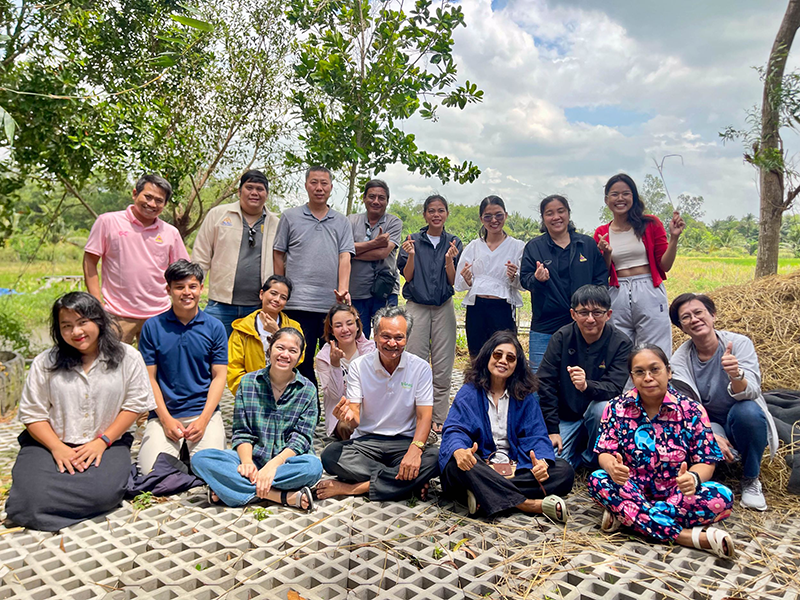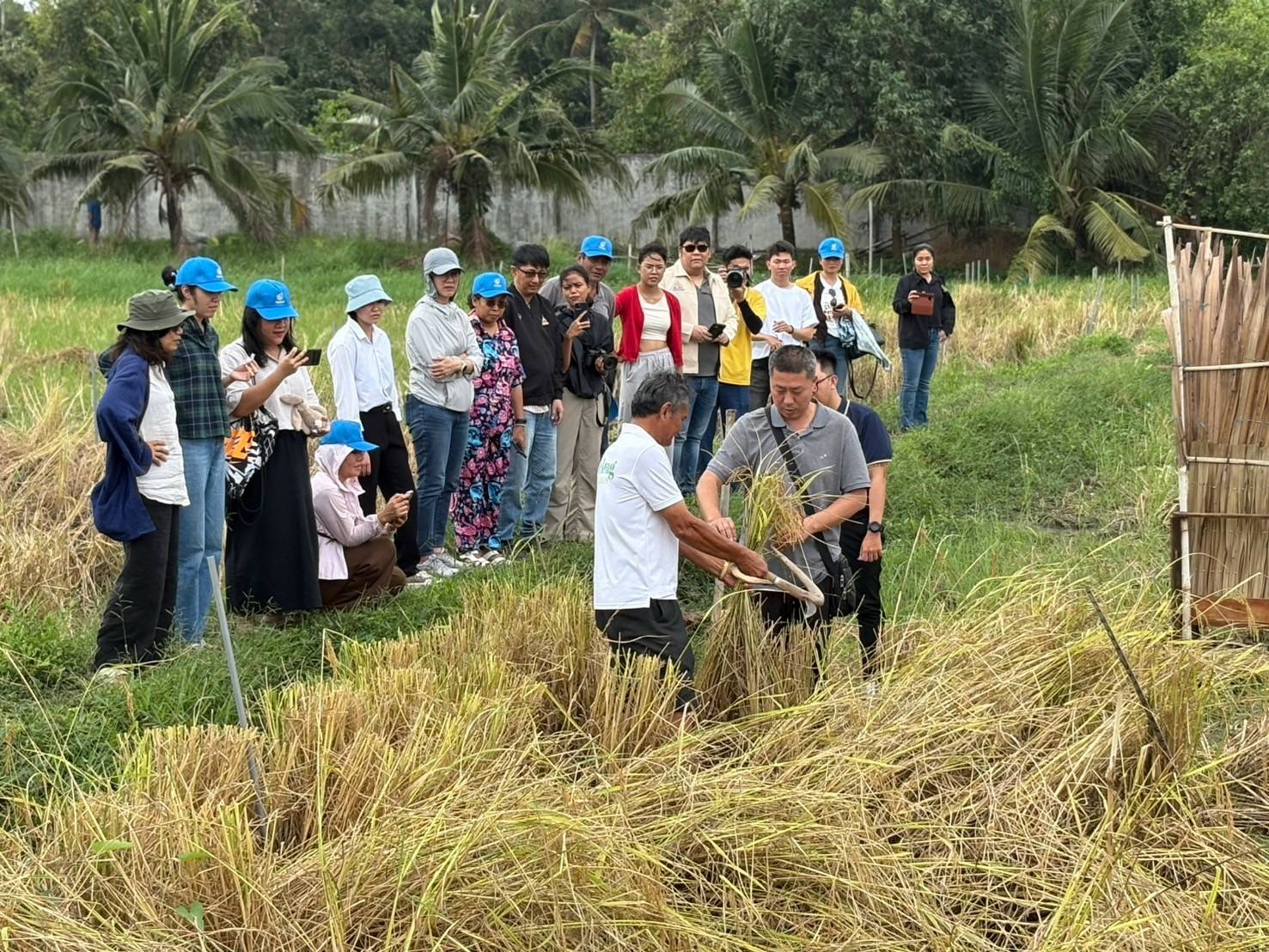Educational tourism spreads local culture.
At HaiAu Educursions, we refer to OJT (On-the-Job Training) as an intergenerational knowledge transfer activity.
Experiential educational and research tourism is a new type that has developed in recent years but has a particularly strong impact. With advantages in cultural values and local resources—especially the riverine and agricultural culture—the Mekong Delta (Dong bang song Cuu Long, ĐBSCL) is becoming a potential destination for educational tourism.



Most educational tourism products are based on exploiting advantages related to history, culture, natural resources, livelihoods, and local customs. The target audience for this type of tourism mainly includes those who love exploration, hands-on experience, and in-depth research, such as students, researchers, and academics. The Mekong Delta (Dong bang song Cuu Long – DBSCL), with its strengths in agriculture and riverine culture—especially its notable themes like climate change adaptation and food security—has attracted significant interest from many international experts. Experiential journeys that combine cultural and natural exploration with research, exchange, and learning have become a foundation that drives the growth of educational and research tourism in the DBSCL region.
Specifically, in February, a group of doctoral researchers from Ubon Ratchathani University (Thailand) embarked on an experiential journey to explore agriculture and riverine culture related to climate change in the Mekong Delta (DBSCL), accompanied by HaiAu Educursions (Can Tho City). During their trip, the group gained hands-on experience at the Tu Viet rice fields, pineapple gardens, Cai Lon – Cai Be sluice gates (Kien Giang), and Cai Rang floating market (Can Tho City), learning about local lifestyles, indigenous culture, and how the local people adapt to climate change.
Ms. Nguyen Thi Ngoc Suong, General Director of Hai Au Can Tho Restaurant, Hotel and Tourism Co., Ltd. (SeaCorp Academies), stated: “The experiential program for Thai doctoral and graduate students in the DBSCL is one of the specialized educational tourism programs that we are actively developing this year. Besides Thailand, we are currently working with partners including institutes and universities from Japan, the United States, Canada, Singapore, and Malaysia on educational tourism products.” Notably, there are programs from Japanese partners (7 days) and Canadian partners (12 days) focused on exploring agriculture and culture in the Southern region and the Mekong Delta.
The development of educational tourism products is quite diverse: study tours, heritage education, volunteer educational tourism, specialized research tourism, and more. Each program is designed to suit different age groups and needs. However, a challenge of this type of tourism is delivering knowledge accurately and in-depth, while combining appropriate experiences.
Mr. Ly Van Bon, owner of the Bay Bon fish cage farm (Can Tho City), who often hosts educational tourism groups learning about fish farming on the Hau River, shared: “Running these programs is not easy. People ask questions, and you have to have the knowledge to confidently answer. When I respond to technical questions, I rely on my aquaculture education from the past combined with decades of experience in the profession. If I know the answer, I share it; if not, I discuss and learn from the exchange. What’s great about educational tourism is the mutual support between local people and visitors.”
In reality, through each trip and experiential journey, visitors can actively absorb knowledge about history, culture, life skills, and folk wisdom. This process can influence and transform their thinking and awareness in how they perceive and evaluate real-world issues—especially among young people such as students. These young individuals have the potential to drive change in the future.
Ms. Nguyen Thi Ngoc Suong said, “The younger generation is adapting and evolving rapidly. Through educational tourism, they learn directly from real-life experiences and have the chance to meet and exchange with local people. With such experiences, we hope visitors will nurture an emotional connection to what they have encountered, inspiring them to take practical actions to protect and promote the unique beauty of these regions.”